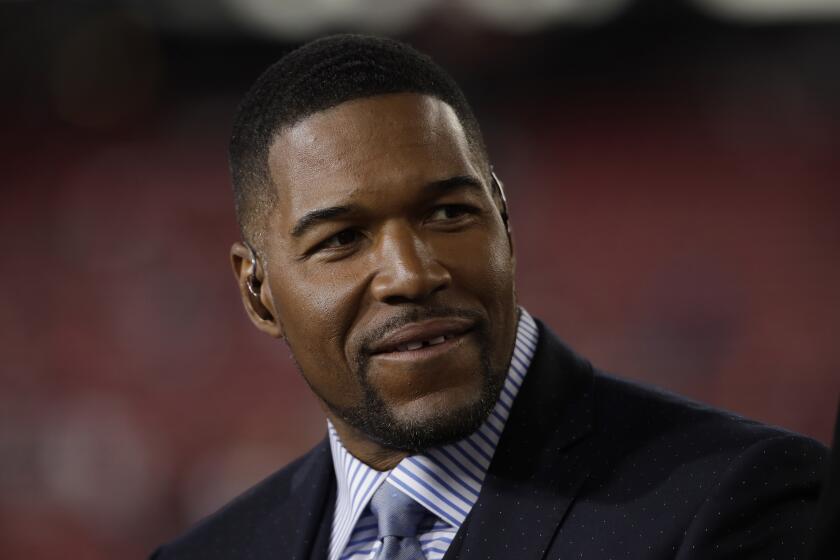TV AND THE GULF WAR : ‘Talk-Back’ TV Has Public in Spotlight, Networks on Spot
Maybe we’ll wake up some morning and find Phil Donahue or Oprah Winfrey hosting a briefing on the Gulf War.
With censors keeping a lid on information and pictures, the war has become television’s ultimate talk show.
And few developments are as startling as viewers, torn over media coverage, phoning in to grill reporters in the field.
Call it talk-back television. Network TV correspondents rarely have been so directly accountable to the public about a story they’re covering.
One minute, Cable News Network’s Wolf Blitzer, at the Pentagon, or Charles Jaco, in the Middle East, may be filing reports--and the next, they may be taking calls at the scene as part of “Larry King Live.”
Part of the reason, of course, is that TV can’t get all the material it wants from the military--or the battlefront.
But the new world of instant TV war also has made it possible for troubled folks back home to pick up a phone and quiz the messengers who deliver the news.
If there’s any doubt left that Earth is now a global village, and that we are indeed one world, TV’s Gulf War intimacy is proving it every day.
Suddenly there’s an international arena with small-town sensibilities. Whatever TV reports from anywhere is somehow a hometown story.
Leave it to CNN, founded by avowed one-world believer Ted Turner, to forge ahead of the pack with TV’s new technological opportunities.
CNN’s informality ties in more easily with the humanizing of its staff than the stiffer, more remote networks--CBS, NBC and ABC--with their aura of intimidating authority.
Then there are the talk shows that have revolutionized public participation in events--and that includes talk radio as well as TV.
The talk-radio shows of such diverse figures as King, Michael Jackson and Rush Limbaugh have become important measuring rods of public reaction, satisfaction and anger, as listeners seek out the views of the hosts themselves.
With the growing importance of talk programs and their direct access to movers and shakers, it’s a logical extension that viewers would feel no compunction about phoning television reporters right at the stories. If they could, they’d probably call the generals and admirals in charge, as well.
There’s a certain point of lunacy and satire that threatens in such an instant-access situation.
And it’s true that networks such as CBS stood for something special and correct when they operated with the belief that it was their job to tell the public what it ought to know, not just what it wanted to know.
But technology imposes new ground rules and possibilities, and no amount of moaning and groaning will change things. The only thing to do is find the most positive way to use the new tools.
Plugging into the public so that it is interactive with TV’s reports is a fascinating prospect. It may break some old habits, but it actually has the feel of real democracy, and that’s healthy.
There is also a TV reality that must be reckoned with, like it or not. Shows such as Donahue’s and Winfrey’s often are the places people go on TV to vent their feelings about events. The shows’ impact can’t be ignored.
When the networks fared poorly in the ratings with their coverage of East Germany’s new freedom, one TV executive suggested that the public might have been more interested if the subject was discussed on the Winfrey show.
A harsh indictment indeed.
But the trick for TV news now and in the future is to take all these winds of change and somehow find just the right civilized tone.
There’s a dignified way of doing everything.
Unless viewers are somehow led to feel they can connect with the significant things on TV, the audience will become polarized--the Geraldo Rivera school of broadcasting commanding one end of the spectrum and upscale viewers taking the higher road.
Plugging into the new TV is critical. And viewers have shown during the Gulf War that they want to.
The complete guide to home viewing
Get Screen Gab for everything about the TV shows and streaming movies everyone’s talking about.
You may occasionally receive promotional content from the Los Angeles Times.



